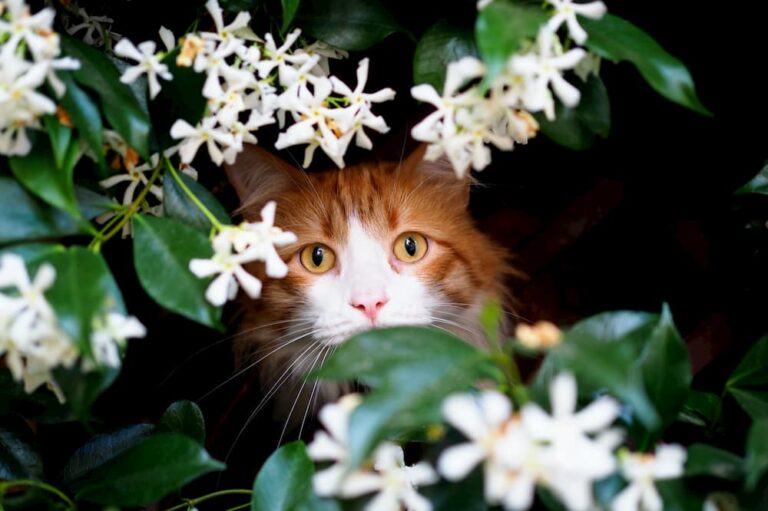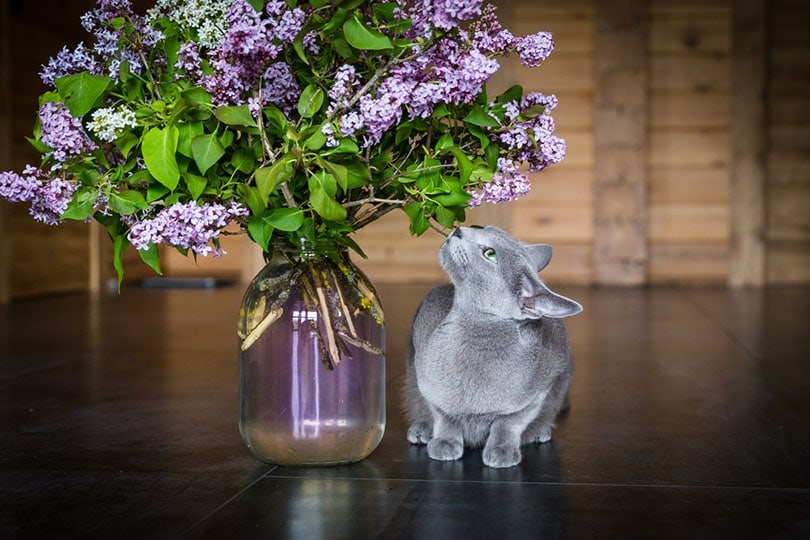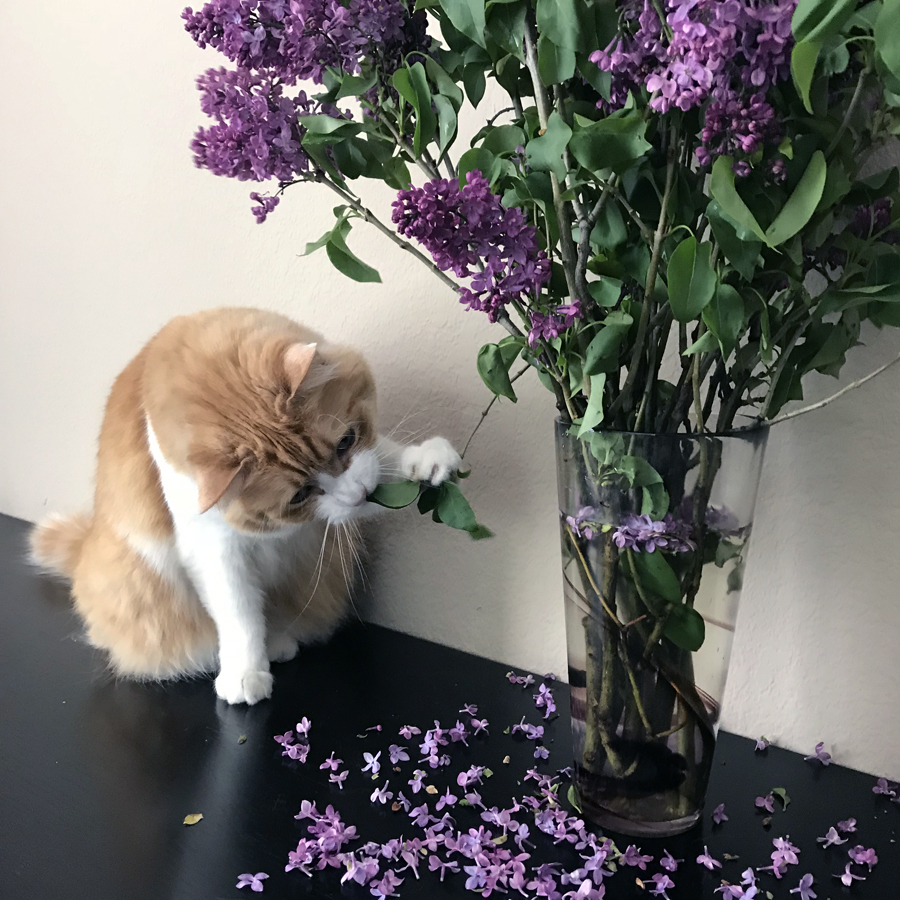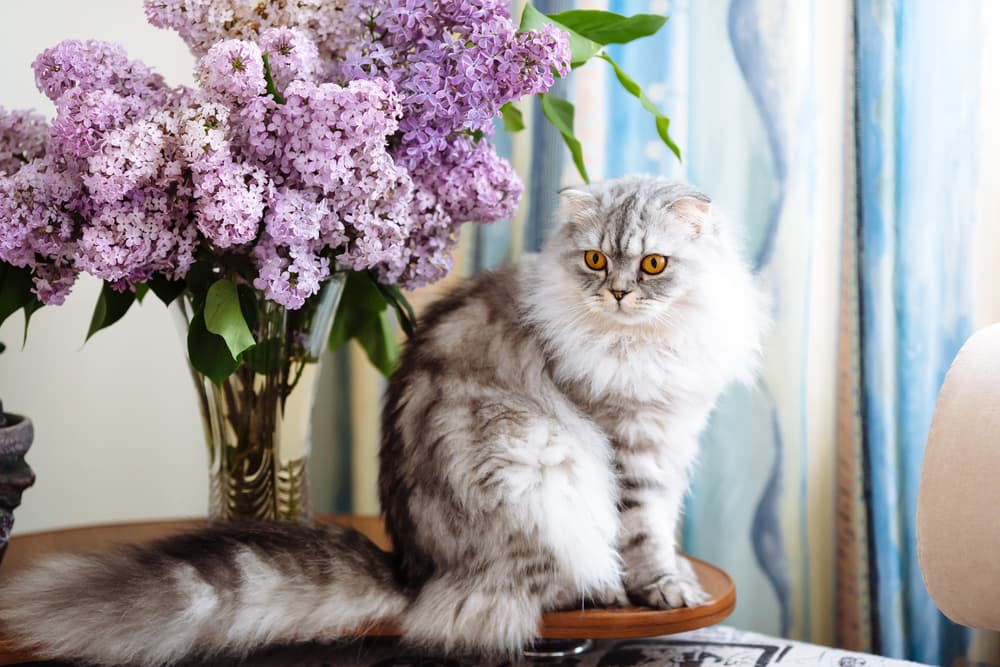Lilac is a angiosperm, commonly found in gardens and landscapes. They are famous for their beautiful fragrant flowers that bloom in the spring. Nevertheless, it is always wise to treat plants and pets with caution. Many plants that are harmless to humans may be toxic to cats and other animals. Symptoms of nutritional poisoning in cats may include vomiting, diarrhea, lethargy, drooling, or more severe symptoms such as difficulty breathing or changes in heart rate.
In This Article
Are Lilacs Really Poisonous to Cats?
All kinds, including the common lilac (syringa vulgaris), Persian lilac, and Japanese tree lilac are safe to eat. Lilac plants have been popular for many generations and are still a staple for many yards and garden areas. While the common lilac plant (Syringa vulgaris), is safe for all animals, the Persian lilac of the Melia genus is very toxic for cats. The Persian lilac can cause gastrointestinal distress, muscle weakness, tremors, and seizures if ingested.
What is the difference between a lilac and a Persian lilac? Persian lilacs are smaller than common lilacs and generally achieve a maximum size of 8 feet tall and wide. The single flowers are pale in color and richly fragrant. The 3-inch-long flower clusters are smaller by about half compared to those of common lilacs. So, Are lilacs poisonous to cats? If someone asks you, it is important to mention that Persian Lilac from the Melia genus is toxic to cats. Because the smell of cloves can make the cat produce fainting, if accidentally eaten, the cat will appear central nervous system inhibition, cardiovascular failure and other serious symptoms leading to death.
Signs and Symptoms of Lilac Poisoning in Cats
Lilacs are poisonous to cats because they can cause syncope. If cats accidentally eat them, they may suffer from central nervous system depression, cardiovascular failure and other serious symptoms leading to death. Although it is not as toxic as lily, it is still dangerous if consumed in large quantities. Minutes can threaten your cat’s health. Generally speaking, symptoms of mild poisoning include loss of appetite, vomiting, diarrhea, and excessive thirst. These symptoms may last from a few hours to a day or so.
The signs and symptoms of Persian lilac poisoning in cats are as follows:
1. Vomiting and diarrhea: this may be a sign that the cat’s body is trying to expel toxins.
2. Loss of appetite: this is as common as other signs of poisoning.
3. Oral stimulation: the unique stimulation of the Persian lilac.
4. Insanity: because the poisoning affects the cat’s central nervous system, causing the cat to behave abnormally.
5. Muscle tremors or spasms: toxic neurological disorder that cause abnormal muscle movements.
6. Dyspnoea: severe poisoning in cats caused by damage to the respiratory tract.
7. Pupil dilation: poisoning may cause abnormal pupil dilation in cats.
8. Fever or hypothermia: abnormal changes in body temperature may also be a sign of poisoning in some cats.
What to Do in Case of Lilac Poisoning?
The American Society for the Prevention of Cruelty to Animals (ASPCA) does not list regular cloves as toxic, meaning they are as safe for cats as other home and garden plants. However, any plant in your garden should be avoided to eat by your cat. Cats are particularly fond of lilacs because the shrubs have grown into tall trees that are perfect for climbing to keep their paws in good condition. Cats are naturally curious, but because they are primarily carnivores, they are less likely to eat large amounts of plants. Also, you should be aware that since ingesting plant toxicity can kill cats, there is no need to worry about your cat being poisoned as long as the problematic lilac tree is a regular lilac and not a Persian or French lilac.
Tips for Preventing Lilac Poisoning in Cats
- In order to prevent the cat from eating because of the curious character of the case, it is best to harm the health of the cat in a garden or basket with a fence, placed in the cat can not reach.
- Because some inhibitors are so strong, it’s best to use natural deterrents around clove plants to keep stupid cats away.
- If we can buy safe and appropriate toys and chewables, or spend more time with our adorable kittens, we can distract them from the lilac plants.
Safe Plant Alternatives for Cat Owners
Care should be taken when purchasing house plants, as varieties such as ficus, cheese plants and aloe vera are not cat friendly. Spider plants are one of our favorites to keep around in a cat-friendly household. Also, a good rule of thumb is that ferns and air plants are safe plants for cats, but you should steer clear of any sort of ivy or variety of philodendron. You can also grow any kind of catnip or cat grasses (such as wheatgrass) in containers indoors and your pet will love you forever if you do.
The plant world is chock full of green things that can make your kitty feel better. However, not all of them should be kept in plant form around your house.
Here are some of the best cat friendly plants when they’re in tincture essential oil form:
1. Calendula – used for skin issues and excessive itching.
2. Cat’s Claw – contains a natural cortisone, which is used for feline allergies and excessive itching.
3. Chamomile – used for skin issues and excessive itching.
4. Dandelion – used for feline allergies and excessive itching.
5. Echinacea – used for skin issues and excessive itching.
Lilacs are very attractive trees that provide shade and add beauty to a home garden. Every spring, when the flowers are in bloom, they also emit an alluring and special fragrance. Are lilacs poisonous to cats? All that said it really depends on how much lilac plants your silly kitties are eating and what type of lilacs are actually grown in your home. In most cases, small amounts of the common lilac plant won’t cause any problems if your cat eats it, but large amounts may cause an upset stomach or other problems. If you are really worried, for the sake of safety, it is recommended that you take your cute cats to a pet hospital to receive professional and symptomatic diagnosis and treatment.
